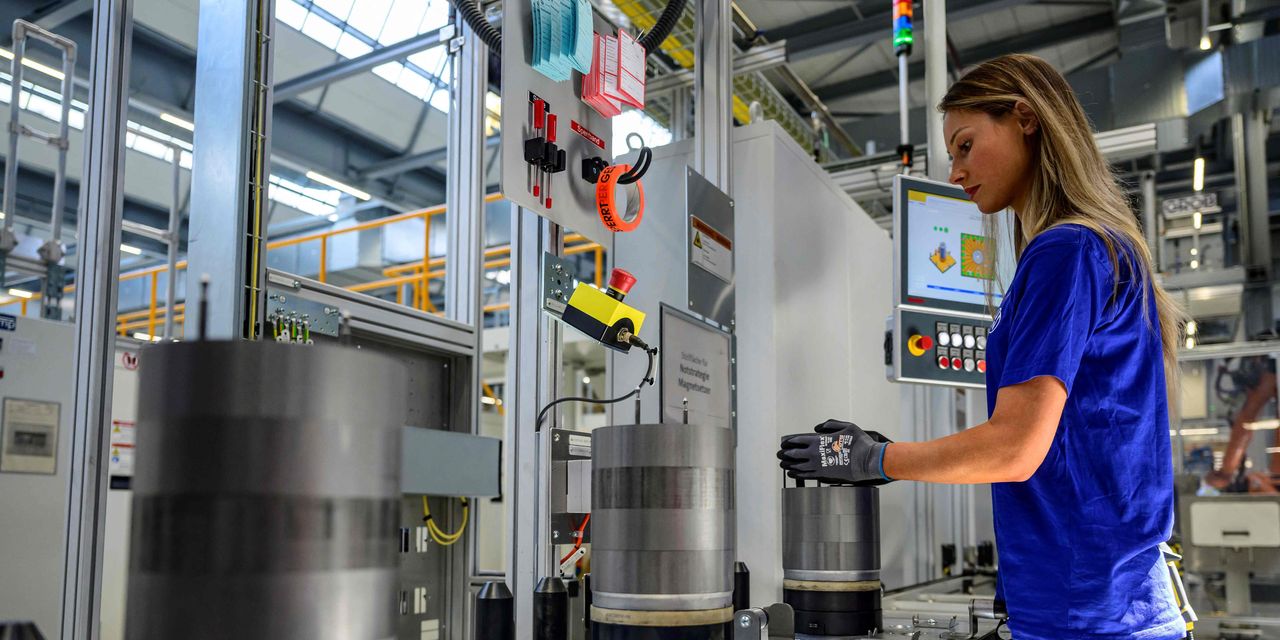The numbers: Orders at U.S. factories for long-lasting goods jumped 1.9% in June largely because of more bookings for new cars and military aircraft, but there were hints of weakness among other manufacturers.
Economists polled by the Wall Street Journal had forecast a 0.4% decline in new orders.
Another measure in the report seen as a bellwether for business investment also rose modestly for the fourth month in a row, the government said, though the rate of spending is slowing.
These so-called core orders strip out the volatile transportation sector as well as government spending on military equipment. They are viewed as a signal of whether future business prospects are good or bad.
Big picture: Manufacturers have struggled over the past year to meet the crush of demand after the economy reopened from the pandemic, especially because of ongoing shortages of labor and crucial supplies.
Now they face a new challenge: A slower economy.
The Federal Reserve later today is expected to raise U.S. interest rates again to try to extinguish the highest inflation in almost 41 years. Higher borrowing costs slow the economy and many analysts worry it could even spawn a recession.
So far manufacturers are still pumping out lots of goods, but demand and production may be starting to wane.
Key details: Orders for new cars and trucks rose 1.5% in June, but they’ve been erratic for the past year because of an ongoing chip shortage that’s delayed shipments to auto dealers.
Orders also jumped 81% for fighter jets and other military planes, countering a 2.1% decline in commercial airplanes.
New orders rose a smaller 0.3% outside the transportation segment, a large and volatile category that often exaggerates the ups and downs in industrial production. Yet that increase doesn’t keep up with inflation and mainly reflects higher prices.
The increase in so-called core orders, a measure of business investment, was 0.5% for the second month in a row.
Business investment has climbed 8.4% in the past year, though the rate of growth has steadily slowed since a hitting a pandemic peak of 22% in April 2021.
Looking ahead: The details of the durable-goods report are “consistent with a sharp slowdown in private equipment investment growth in the second quarter.” said senior U.S. economist Andrew Hunter in a note to clients.
Market reaction: The Dow Jones Industrial Average
DJIA,
and S&P 500
SPX,
were set to open higher in Wednesday trades.
